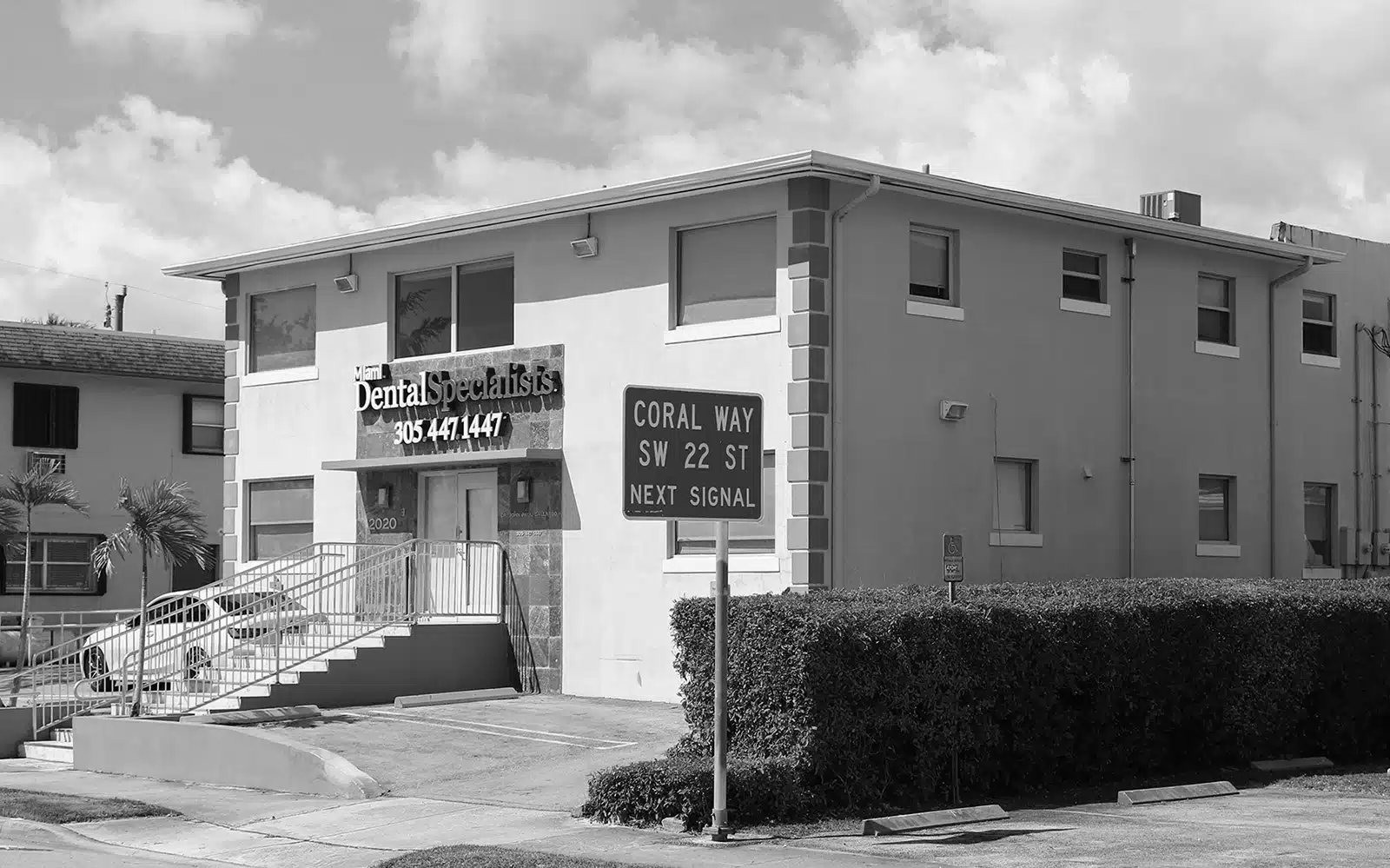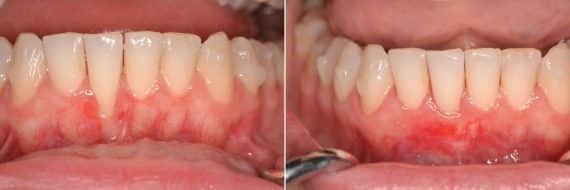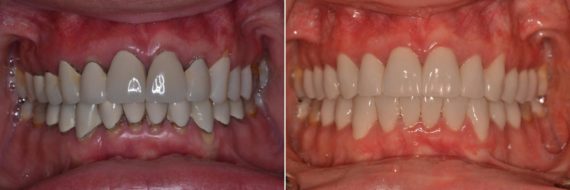
Are your teeth starting to look longer or feel more sensitive near the gumline? You could be experiencing gum recession—a common condition that can gradually expose your tooth roots and increase the risk of decay, discomfort, and even tooth loss. But is it possible to reverse it?
The good news is that gum recession isn’t always a one-way road. With the right treatment and care, it may be possible to repair or restore your gum health, depending on the severity and cause. Let’s explore the science and solutions behind turning gum loss around.
What Factors Influence the Reversibility of Gum Recession?
Reversing gum recession isn’t always simple, but in many cases, it’s possible to improve the condition or even partially restore lost gum tissue. The extent of reversibility depends on several key factors. Mild cases caused by temporary or controllable conditions often respond well to treatment, while more severe or advanced cases may require surgical intervention.
The three most important aspects that determine outcomes are the severity of gum loss, how early it’s addressed, and the underlying cause. Understanding these variables can help you and your dentist choose the right approach for recovery.
1. Severity
The severity of gum recession is one of the most critical factors in determining its reversibility. In early stages, when only slight gum tissue loss has occurred, non-surgical treatments may help stop progression and even promote some regeneration. However, moderate to severe cases often result in permanent tissue loss that requires surgical intervention, such as gum grafting. The deeper the recession and the more root exposure present, the more complex and limited the restoration process becomes.
2. Timeliness
How quickly gum recession is identified and treated plays a significant role in its potential reversibility. Early intervention can halt further damage and may even encourage natural healing in mild cases. Waiting too long allows more tissue and bone to deteriorate, reducing treatment effectiveness and narrowing the range of viable options. Timely care also helps manage contributing factors like plaque buildup or gum disease before they lead to irreversible complications. The sooner action is taken, the better the prognosis.
3. Cause
The underlying cause of gum recession greatly affects the potential for reversal. When recession is due to poor oral hygiene or aggressive brushing, improving daily habits can stop further damage and even allow for minor healing. However, when the root cause is more complex, such as chronic inflammation, bruxism, tooth misalignment, genetic predisposition, or advanced infection, reversal becomes more difficult. In these cases, targeted professional treatment is essential, as the recession is often driven by deeper structural or systemic issues that require more than just surface-level care.
Periodontal Disease
Periodontal disease is a progressive inflammatory condition that affects the supporting structures of the teeth, including the gums, periodontal ligament, and jawbone. It begins with gingivitis—the mildest form—characterized by red, swollen gums that may bleed when brushing or flossing. At this stage, damage can typically be reversed with proper care.
If left untreated, gingivitis can advance to periodontitis, a more serious form where the inner layer of the gum and bone pull away from the teeth, forming pockets that become infected. Over time, this can lead to irreversible gum and bone loss, loose teeth, and eventual tooth loss. Periodontal disease is a major contributor to gum recession and requires targeted treatment to prevent its progression.
Symptoms and Causes of Gum Disease
Recognizing the symptoms of gum disease early is essential for preventing long-term damage and managing gum recession. Many signs are subtle at first, but they tend to worsen as the disease progresses.
- Red or swollen gums: Often the first visible sign of inflammation.
- Bleeding while brushing or flossing: A common early warning of gingivitis.
- Persistent bad breath: Caused by bacterial buildup below the gumline.
- Receding gums: Gums that appear to be pulling away from the teeth.
- Loose or shifting teeth: May indicate bone loss from advanced periodontitis.
- Tooth sensitivity: Especially along the exposed root surfaces.
Gum disease develops from a combination of factors that contribute to bacterial overgrowth and immune response. While poor oral hygiene is a common trigger, other lifestyle and health issues can accelerate progression. Here are some common causes:
- Inadequate brushing and flossing: Allows plaque and bacteria to accumulate.
- Smoking or tobacco use: Increases the risk and severity of periodontal disease.
- Hormonal changes: Such as pregnancy or menopause, which can make gums more sensitive.
- Medical conditions: Including diabetes or immune disorders.
- Genetic predisposition: Some individuals are more prone to gum problems regardless of oral hygiene.
- Stress: Can weaken the immune system and reduce the body’s ability to fight infection.
Gum Disease Diagnosis and Testing
Diagnosing gum disease accurately is essential for choosing the right treatment and preventing further gum recession. Dentists use a combination of visual inspections, measurements, and imaging tools to assess the health of your gums and the extent of the disease.
- Periodontal probing: A small instrument is used to measure the depth of the pockets between your teeth and gums. Deeper pockets may indicate periodontitis.
- Dental X-rays: These images help detect bone loss that may not be visible during a physical exam.
- Visual examination: Your dentist checks for signs of inflammation, bleeding, and gum recession.
- Review of medical history: Health conditions and lifestyle habits are reviewed to identify contributing factors like smoking or diabetes.
Early diagnosis allows for more effective treatment and helps preserve gum and bone tissue.

Non-Surgical Treatment Options for Gum Recession
For patients with mild to moderate to mild gum recession, non-surgical treatments offer a practical and effective path to managing symptoms and protecting exposed roots. These approaches aim to reduce inflammation, control bacterial infection, and encourage tissue regeneration—all without the need for invasive procedures. Depending on the underlying cause and severity, your dentist may recommend one or more of the following therapies.
Scaling and Root Planing
Scaling and root planing is a deep cleaning procedure that targets plaque and tartar below the gumline. During this treatment, your dentist or hygienist removes bacteria from tooth roots and smooths out rough surfaces, which helps gums reattach and heal. It’s often the first step in managing early gum recession caused by periodontal disease. This non-surgical method can significantly reduce inflammation and slow or stop the progression of gum loss when caught early.
Antibiotics
Antibiotics are often used alongside deep cleanings to help eliminate the bacteria contributing to gum recession. They can be prescribed in pill form or applied directly to the infected area as gels or slow-release medications. While they don’t reverse recession, antibiotics can control infection and inflammation, allowing the gums a better chance to heal. This makes them a valuable tool in stabilizing the condition before considering further treatment.
Dental Bonding
Dental bonding is a cosmetic solution used to cover exposed tooth roots and reduce sensitivity caused by gum recession. A tooth-colored resin is applied and shaped over the affected area, blending seamlessly with your natural teeth. While bonding doesn’t restore lost gum tissue, it can protect the root surface, prevent further erosion, and improve appearance. It’s a quick, non-invasive option that offers immediate relief and an aesthetic improvement for minor cases of recession.
Antimicrobial Mouthwash
Antimicrobial mouthwash can be an effective way to reduce oral bacteria and inflammation contributing to gum recession. These rinses, often containing chlorhexidine or essential oils, help control plaque and support the healing of gum tissue. While not a cure for recession, they can complement other treatments by keeping bacteria in check and preventing further damage. Used regularly as part of a dentist-guided plan, antimicrobial mouthwash adds a valuable layer of defense for at-risk gums.
Orthodontic Treatment
Orthodontic treatment can help correct misaligned teeth that contribute to gum recession. When teeth are crowded or crooked, they can place uneven pressure on the gums and bone, leading to tissue breakdown over time. Braces or clear aligners gradually shift teeth into better alignment, reducing stress on the gums. While not a direct treatment for gum recession, orthodontics can prevent further progression and make future restorative treatments more successful.
Laser-Assisted Gum Therapy
Laser-assisted gum therapy is a minimally invasive treatment that targets infected gum tissue while preserving healthy areas. Using a specialized dental laser, your periodontist can remove bacteria and inflamed tissue with precision, promoting faster healing and reduced discomfort. This technique can also stimulate gum reattachment and improve the overall health of surrounding tissues. It’s especially beneficial for patients with early to moderate gum disease and is often used in combination with other non-surgical therapies.
Surgical Treatment Options for Gum Recession
When non-surgical treatments aren’t enough to restore gum health or reverse damage, surgical procedures may be recommended. These techniques are especially beneficial in more advanced cases of gum recession, where tissue loss is extensive or bone support has been compromised. Surgical options aim to regenerate lost tissue, reduce pocket depth, and protect tooth roots—ultimately improving both function and aesthetics. Your periodontist will determine the best approach based on your specific condition and goals.
Bone Grafting Surgery
Bone grafting is used when gum recession is accompanied by loss of jawbone support. The procedure involves placing synthetic or natural bone material into areas where bone has deteriorated, helping to regenerate the structure that supports teeth. This not only stabilizes the affected area but also improves the chances of success for other periodontal treatments. Bone grafts are especially useful in moderate to severe cases and can be essential for preserving long-term oral health.
Gum Grafting Surgery
Gum grafting is a common surgical procedure used to cover exposed roots and rebuild receded gum tissue. It involves taking a healthy connective tissue graft, often from the roof of the mouth or a donor source, and attaching it to the area where the gums have receded. This restores protection to the tooth root, reduces sensitivity, and improves appearance. Gum tissue grafting is especially effective in moderate to advanced cases and can help prevent further gum and bone deterioration.
Flap Surgery
Flap surgery is different from grafting in that it focuses on reducing deep periodontal pockets rather than adding new tissue. During the procedure, the gums are lifted back to allow thorough cleaning of the root surfaces and removal of tartar and bacteria. Afterward, the gum tissue is repositioned snugly around the tooth. This method improves gum attachment, halts further recession, and makes it easier to maintain oral hygiene in areas previously affected by disease.
Pocket Depth Reduction
Pocket depth reduction is a surgical procedure aimed at cleaning and reducing the spaces that form between the teeth and gums in advanced gum disease. These pockets can harbor harmful bacteria that contribute to gum recession and bone loss. During the procedure, infected tissue is removed, and the area is thoroughly cleaned. The gum is then repositioned to fit more snugly around the tooth, making it easier to maintain and reducing the risk of further recession.
Guided Tissue Regeneration
Guided tissue regeneration (GTR) is a surgical technique designed to encourage the regrowth of gum and bone tissue lost due to periodontal disease. A special membrane is placed between the gum tissue and bone, creating space for the body to regenerate these structures naturally. By preventing the gum from growing into the space too quickly, GTR allows bone and connective tissue to redevelop properly. This treatment is often paired with bone grafting for optimal results.
Pinhole Surgical Technique
The Pinhole Surgical Technique is a minimally invasive procedure designed to treat gum recession without the need for cutting or stitching. A small hole is made in the gum tissue, through which special instruments gently loosen and reposition the gum over the exposed roots. This technique offers quicker recovery, less discomfort, and immediate aesthetic improvement. It’s ideal for patients seeking a less invasive alternative to traditional grafting with equally effective results in many cases.
Before & After Photos


* All patients are unique and individual results may vary.
Preventing Further Gum Recession
Preventing gum recession starts with addressing the factors that cause or worsen it. Managing gum disease, treating conditions like bruxism, and eliminating harmful habits such as smoking are all crucial steps in preserving gum health. These preventative measures help minimize stress on the gums, reduce inflammation, and limit further tissue breakdown. Among these, maintaining consistent and proper oral hygiene remains one of the most effective ways to protect your gums every day.
Good Oral Hygiene
Brushing and flossing properly are your first lines of defense against gum recession. Daily plaque removal helps prevent inflammation and the buildup of harmful bacteria along the gumline. It’s also important to use a soft-bristled toothbrush and gentle technique to avoid irritating or damaging gum tissue. Coupled with regular dental checkups and professional cleanings, these simple habits can go a long way in maintaining gum health and preventing further tissue loss.
Choosing the Best Dentist or Periodontist for Your Teeth
Reversing gum recession requires precision, expertise, and a deep understanding of the structures supporting your teeth. A skilled dental professional will assess not just the current condition of your gums, but also the underlying causes and long-term risks, offering treatment tailored to your unique needs. When gum health is at stake, experience matters.
With over 25 years of specialized experience, Dr. John Paul Gallardo is a leading expert in periodontics and gum restoration. At Gallardo Periodontics and Implant Dentistry, we offer advanced diagnostic tools and cutting-edge treatments to restore gum health with minimal discomfort and lasting results. Call us today at 305-447-1447 or visit our contact page to schedule your consultation.
